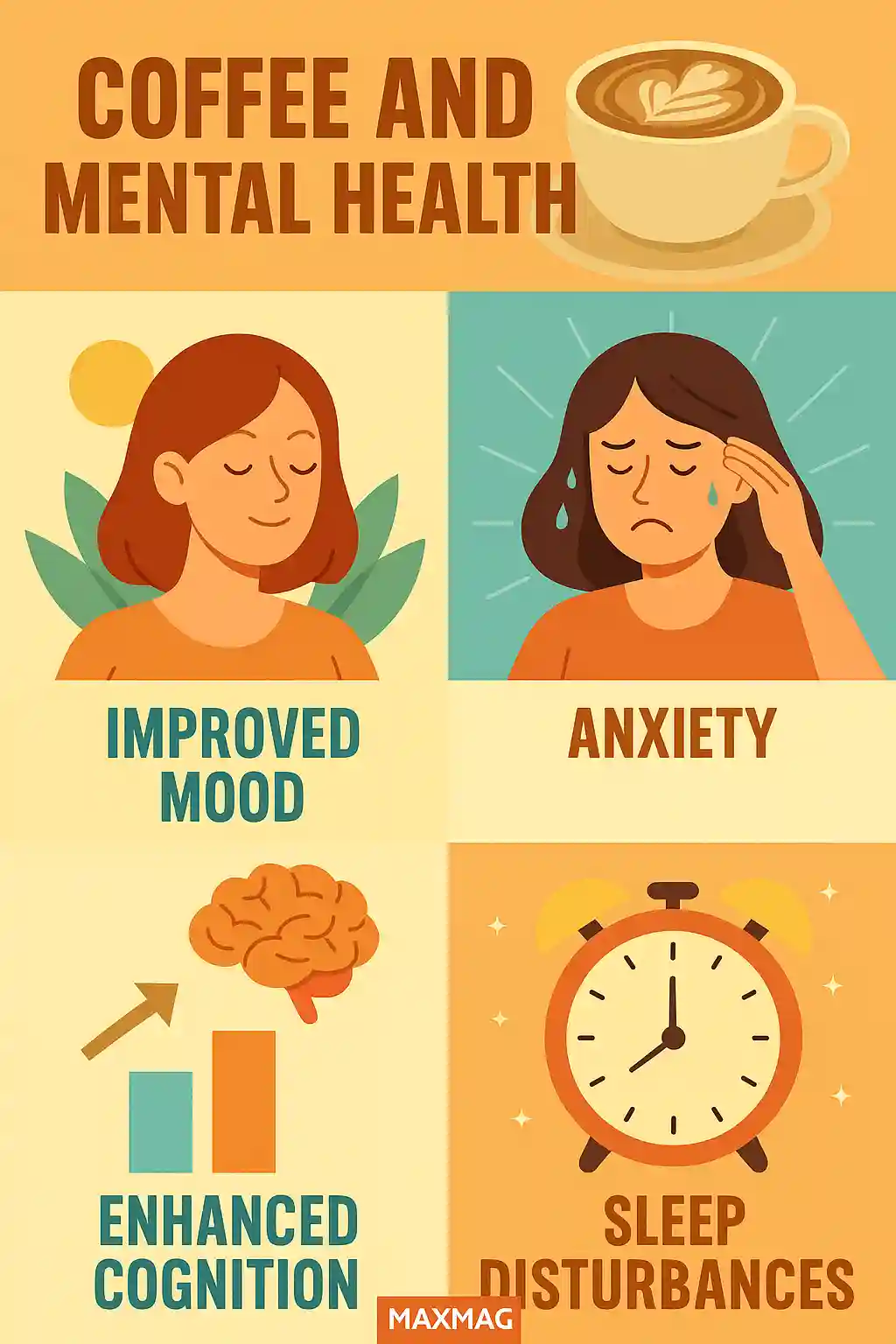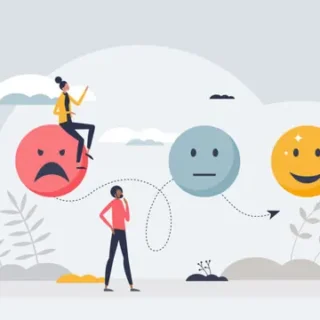
For many of us, coffee is more than a morning habit—it’s a ritual. That first sip can feel like a mental reboot. But have you ever wondered what your daily cup of coffee is doing to your brain in the long run? In recent years, researchers have taken a deep dive into the coffee mental health benefits and risks, uncovering some surprising truths. This article explores how coffee can uplift—or in some cases, unsettle—your emotional wellbeing, cognitive function, and stress response.
The Science Behind Coffee and the Brain
Coffee’s primary active ingredient, caffeine, is a stimulant that acts on the central nervous system. It blocks adenosine receptors—those responsible for making us feel tired—and increases the release of neurotransmitters like dopamine, norepinephrine, and serotonin. This is why after drinking coffee, people often feel more alert, focused, and energized.
However, these neurological changes come with caveats. As scientists at the National Institutes of Health have found, caffeine can improve mood in moderate doses—but in higher amounts or for sensitive individuals, it may worsen anxiety or trigger restlessness.
Coffee Mental Health Benefits and Risks
Let’s look at both sides of the coffee story. While research points to several mental health benefits, there are also some risks worth understanding, especially if you already struggle with mood disorders or stress-related issues.
1. Coffee’s Potential Mental Health Benefits
• Reduced Risk of Depression
A 2016 study published in the journal Australian & New Zealand Journal of Psychiatry found that individuals who drank two to four cups of coffee per day had a lower risk of developing depression. The caffeine in coffee stimulates dopamine and serotonin—two neurotransmitters closely tied to mood regulation.
The Harvard T.H. Chan School of Public Health also reported that women who drank coffee regularly had a 20% lower risk of depression compared to those who did not.
• Improved Cognitive Function
Caffeine has been shown to enhance working memory, reaction time, and overall mental performance. Many professionals and students rely on it for focus and productivity. According to a Cleveland Clinic breakdown, moderate coffee intake can boost alertness without major side effects for most healthy adults.
• Antioxidant Support
Coffee is a major dietary source of antioxidants, which help protect the brain from oxidative stress and inflammation—two key contributors to mental fatigue and neurodegeneration.
2. Risks and Downsides to Mental Health
• Anxiety and Panic
Too much caffeine can overstimulate the brain. Individuals prone to anxiety or panic attacks may find that coffee heightens nervousness, racing thoughts, or even causes trembling. The Anxiety and Depression Association of America warns that excess caffeine can mimic or worsen symptoms of anxiety disorders.
• Sleep Disturbance
Caffeine can stay in the bloodstream for up to 10 hours. Consuming coffee late in the day can lead to trouble falling asleep or restless sleep cycles, which in turn impair mood regulation and increase irritability the next day. Sleep loss is a well-documented contributor to depression and anxiety.
• Withdrawal and Dependence
Those who suddenly stop drinking coffee often experience withdrawal symptoms: headaches, fatigue, low mood, and irritability. While caffeine is not considered addictive in the classic sense, it is a psychoactive substance that creates physical dependence in habitual drinkers.
Who Should Be Cautious?
While many people benefit from moderate coffee consumption, others should be more mindful:
-
People with anxiety disorders may experience worsened symptoms.
-
Individuals with insomnia should avoid caffeine in the afternoon or evening.
-
Those with bipolar disorder may find that caffeine triggers hypomania or irritability.
-
Children and teens are more sensitive to caffeine’s stimulant effects.
-
Pregnant women should limit intake to 200 mg or less per day, as recommended by the American College of Obstetricians and Gynecologists.
How Much Is Safe?
The FDA suggests that 400 milligrams of caffeine per day—roughly four 8-ounce cups of brewed coffee—is generally safe for healthy adults. However, mental health outcomes depend less on quantity alone and more on personal sensitivity.
Try tracking your mood and anxiety patterns in relation to your caffeine intake. You may find that two cups are perfect, while a third leads to jitters or sleepless nights.
Coffee vs. Other Sources of Caffeine
While coffee is the most popular caffeinated beverage, it’s worth noting that not all caffeine sources are equal in effect.
-
Energy drinks often contain additional stimulants and sugar, which can lead to mood crashes and irritability.
-
Tea contains less caffeine and the calming amino acid L-theanine, which may buffer the anxiety response.
-
Soda and chocolate have lower caffeine content but can still add up if consumed frequently.
Individual Differences: Genes Matter
Genetic differences in how people metabolize caffeine can influence how it affects mental health. Some people have a gene variant (CYP1A2) that causes slower caffeine breakdown, making them more prone to side effects like insomnia and anxiety.
Researchers from the National Library of Medicine emphasize the importance of personalized caffeine consumption—what’s safe and helpful for one person may not be for another.
Tips for Mindful Coffee Drinking
-
Know your limit – Find the amount that energizes you without causing stress or jitters.
-
Avoid late-day caffeine – Cut off consumption by mid-afternoon to protect sleep.
-
Watch for emotional triggers – If coffee leaves you feeling irritable or anxious, try reducing your intake.
-
Don’t rely on coffee for energy – Make sure to also get enough sleep, hydration, and nutrition.
-
Listen to your body – Track how your mood, focus, and sleep quality respond to different caffeine levels.
H3: Coffee Mental Health Benefits and Risks: The Verdict
The truth is, coffee can be both a friend and a foe when it comes to your mental wellbeing. Used wisely, it offers mood-boosting and brain-energizing benefits. But in excess or for sensitive individuals, it may cause more harm than help.
Understanding the coffee mental health benefits and risks empowers you to make informed, balanced choices. As with most things, moderation and self-awareness are key.
FAQs About Coffee and Mental Health
Q1: Can coffee help with depression?
Q2: Does coffee worsen anxiety symptoms?
Q3: Is it okay to drink coffee while on antidepressants?
Q4: How much coffee is too much for mental health?
Q5: Can quitting coffee cause depression or fatigue?
Q6: Does decaf coffee offer mental health benefits?










